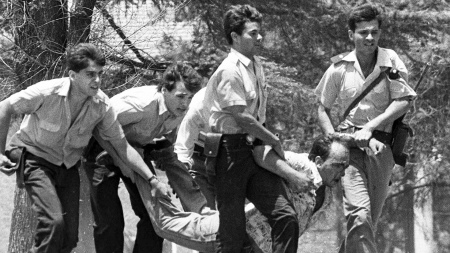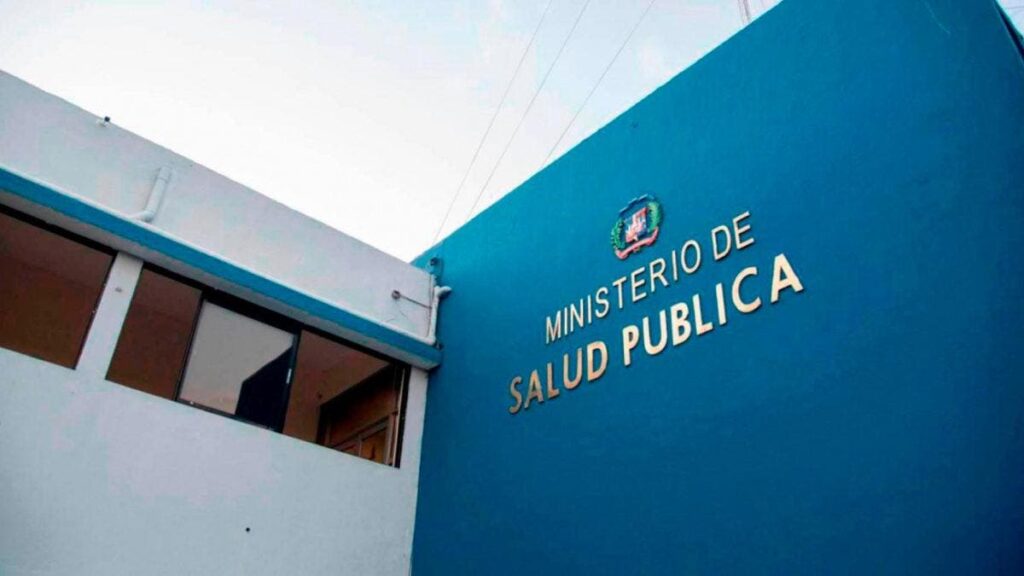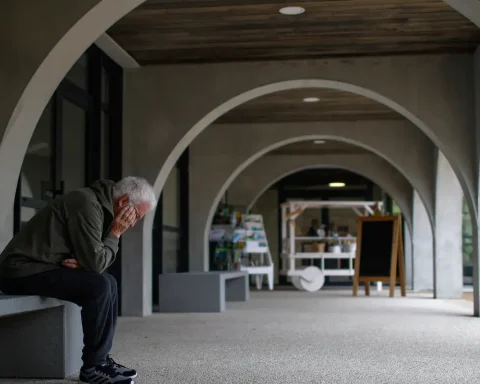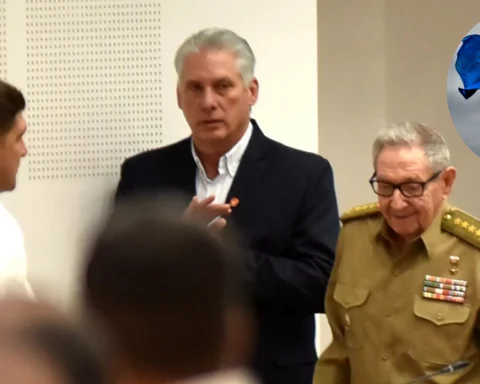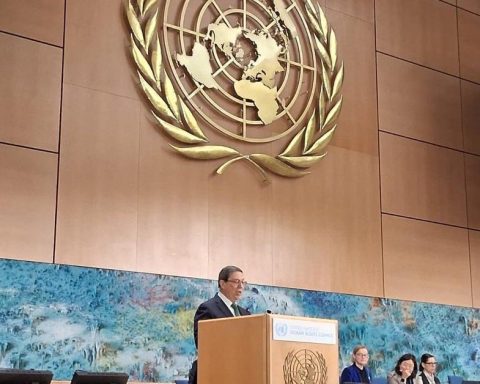On January 23, 1989, the Movimiento Todos por la Patria (MTP), led by Enrique Gorriarán Merlo, attacked the Army’s 3rd Mechanized Infantry Regiment, located in the Buenos Aires town of La Tablada, where the last action undertaken by a guerrilla organization in Argentina and which left a balance of 41 dead.
Thirty-four years ago, the government of Raúl Alfonsín was in its last months and the country was enduring an energy crisis with scheduled power cuts, in the context of an economy that was heading towards hyperinflation.
After 6 o’clock, a soda truck, stolen minutes before by the attackers on the Camino de Cintura, entered the military unit based in the La Matanza district, in the west of the Buenos Aires suburbs, through the gate.
The guerrillas they threw pamphlets at the door of the barracks claiming responsibility for Colonel Mohamend Seineldín and Lieutenant Colonel Aldo Ricoleaders of the carapintadas uprisings that had put the radical administration in check on three occasions (April 1987, February and December 1988, the latter barely a month before La Tablada).
In this way, the 46 MTP attackers planned to cause confusion among the military personnel by chanting slogans and cheers for the two rebel officers, reaching the sector where the tanks were parked and leaving the barracks aboard these vehicles towards the Capital. Federal.
The so-called “Tapir” operation was to conclude by mid-morning and Gorriarán Merlo’s objective was to warn of the imminence of a coup d’état by the carapintadas.
The so-called operative “Tapir” It was to end at mid-morning on that Monday and the objective of Gorriarán Merlo -a former head of the People’s Revolutionary Army (ERP) who supervised the actions from the vicinity of the military unit- was to warn about the imminence of a coup d’état by of the facepainted
The members of the MTP believed that when the population became aware that a military attempt against democracy was underway, a popular insurrection would take place that would demand fundamental political changes.
But in his progress through the barracks, the attackers met fierce resistance in the base’s noncommissioned officers’ casinowhich generated a rapid police intervention and the deployment of more than 2,000 Army troops, which cut off any possibility of withdrawal.

In the first hours, confusion reigned over who was responsible for the attempt to take over the barracks, and sectors of the ruling party supported the hypothesis that a face-painted action was taking place in La Tablada.
But, within a few hours, the government recognized that it was an MTP operation, in which former ERP militants participated, the guerrilla that had operated in Argentina during the 1970s.
The Army surrounded the unit and surrounded the attackers, against whom it waged a combat that lasted for 36 hours, with mortar fire and projectiles fired from tanks.
The Army surrounded the unit and surrounded the attackers, against whom it waged a fight that lasted for 36 hourswith mortar fire and shells fired from tanks.
The final balance of the La Tablada combat – which even meant the baptism of fire for the mechanized infantry that had not been used by the Army in the Malvinas War – was 32 dead MTP militants, while the military had seven casualties. and the Buenos Aires Police two.
What were the true motivations that prompted the MTP to carry out an armed action against the Army when the democratic institutions were still trying to consolidate?

Beyond the hypotheses about a civic-military coup that could have the endorsement of presidential candidate Carlos Menem, or the relations that the then Interior Minister, Enrique Nosiglia, had with the MTP leader Francisco Provenzano -captured alive in La Tablada, and then disappeared-, the concrete thing is that It was an action that weakened a constitutional government that was going through a critical stage.
Two of the trials that followed as a result of the attack on the La Tablada regiment were observed in international instances, and the human rights violations committed after the recovery of the barracks were investigated in an oral and public process that took place in the Courts of San Martin.

The judgments
The The first trial for the attack on La Tablada took place that same year and 13 MTP militants were sentenced on October 5, summarily and without the right to appeal, with sentences ranging from life imprisonment to 11 years, under Law 23,077 for the Defense of Democracy.
The second oral and public process it took place in 1990, and Guillermo Maqueda, tried under the same conditions, received a ten-year sentence for having collaborated with the MTP.
The first trial took place that same year and 13 MTP militants were sentenced on October 5, summarily and without the right to appeal, with sentences ranging from life imprisonment to 11 years.
For these processes, the Argentine State received a sentence from the Inter-American Court of Human Rights (IACHR), and President Fernando de la Rúa recognized the Argentine State’s failure to comply with the guarantees of due process.
In October 2000, The Executive Power promoted a bill so that those convicted of La Tablada could file an appeal 10 years after the attempted takeover, and two months later, De la Rúa commuted the sentences of the defendants and nine of them were released in 2001.
There were no injuries among the attackers, and four of the MTP members who were in La Tablada are missing after being captured alive: Díaz, Iván Ruiz, Carlos Samojedny and Francisco Provenzano.
In October 2000, the Executive Branch promoted a bill so that those convicted of La Tablada could file an appeal 10 years after the attempted takeover.
During the trial against humanity that took place in 2019, former Army non-commissioned officer César Quiroga revealed that the Army “constructed a version” about the human rights violations that were committed after the recovery of the barracks.
Quiroga said that in the investigative court of Judge Gerardo Larrambere, and in the presence of the late prosecutor Alberto Nisman -who was the magistrate’s secretary-, he had to modify his initial statement in 1990 and endorse the version that the four disappeared had escaped from the unit in the middle of combat.
In addition, Sergeant José Almada testified before TOF 4 of San Martín that there were summary executions of several of the MTP militants who were captured alive.
On April 12, 2019, former General Alfredo Arrillaga was sentenced to life imprisonment for crimes against humanity committed after the takeover of the La Tablada military regiment by the TOF 4 of San Martín.
